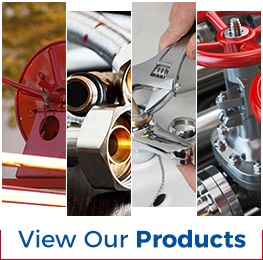
Hoses are essential tools in our everyday lives, serving various purposes from watering our gardens to fueling our vehicles. However, during scorching summers, high temperatures can pose a significant threat to hose materials, leading to potential damage and reduced lifespan. In this blog post, we will explore which hose materials are more vulnerable to heat, discuss practical steps to protect them, and offer valuable tips for proper storage.
Hose Materials Vulnerable to High Temperatures
Not all hoses are created equal when it comes to withstanding extreme heat. Certain materials are more vulnerable and prone to deterioration when exposed to intense sunlight and hot conditions. Vinyl and rubber hoses, for instance, are more likely to become brittle and crack over time, especially when left out in the sun for extended periods. PVC hoses are also susceptible to warping and splitting under excessive heat.
On the other hand, hoses made from more robust materials like reinforced rubber or high-quality polyurethane are generally better equipped to handle high temperatures. These hoses possess superior UV resistance and flexibility, making them less prone to damage in hot weather.
Steps to Protect Your Hoses from Heat
- Choose the Right Material: Opt for hoses made from durable materials that offer excellent heat resistance. Reinforced rubber or polyurethane hoses are reliable choices for hot climates.
- Shade and Cover: Whenever possible, keep your hoses in shaded areas or use hose reel carts with covers to shield them from direct sunlight. This simple step can significantly extend their lifespan.
- Proper Watering Schedule: Water your garden or lawn during cooler parts of the day, such as early morning or late evening, to minimize heat exposure for both the plants and the hose.
- Insulate the Hose: For hoses that run close to hot surfaces (like pavement or asphalt), consider insulating them with materials designed to protect against heat transfer.
- Implement Mulch Beds: Surrounding your hoses with mulch beds can act as a natural barrier, protecting them from excessive heat and providing additional moisture retention for the soil.
Storing Tips
Proper storage plays a crucial role in maintaining the longevity of your hoses, especially during seasons when they’re not frequently used.
- Drain Thoroughly: Before storing your hose, ensure it is fully drained to prevent water from freezing or becoming stagnant inside, which can cause damage.
- Coil Properly: Coil the hose neatly to avoid kinks and tangles. Use a hose reel or hang it on wall-mounted hooks to keep it off the ground and prevent unnecessary wear.
- Store Indoors: Whenever possible, store your hose indoors, in a garage or shed. Storing it away from direct sunlight and extreme temperatures will increase its lifespan.
Conclusion
Protecting your hoses from the heat is essential for ensuring their longevity and functionality. By choosing the right hose material, employing preventative measures, and following proper storage practices, you can safeguard your hoses from the damaging effects of high temperatures. If you would like to learn more how to protect your hoses or other helpful information, don’t hesitate to reach out to ASJ Industrial Hose and Fitting. With an inventory spanning more than 24,000 square feet in Corona, California, we know a thing or two. Give us a call today: (951) 735-1351.



 Phone:
Phone: